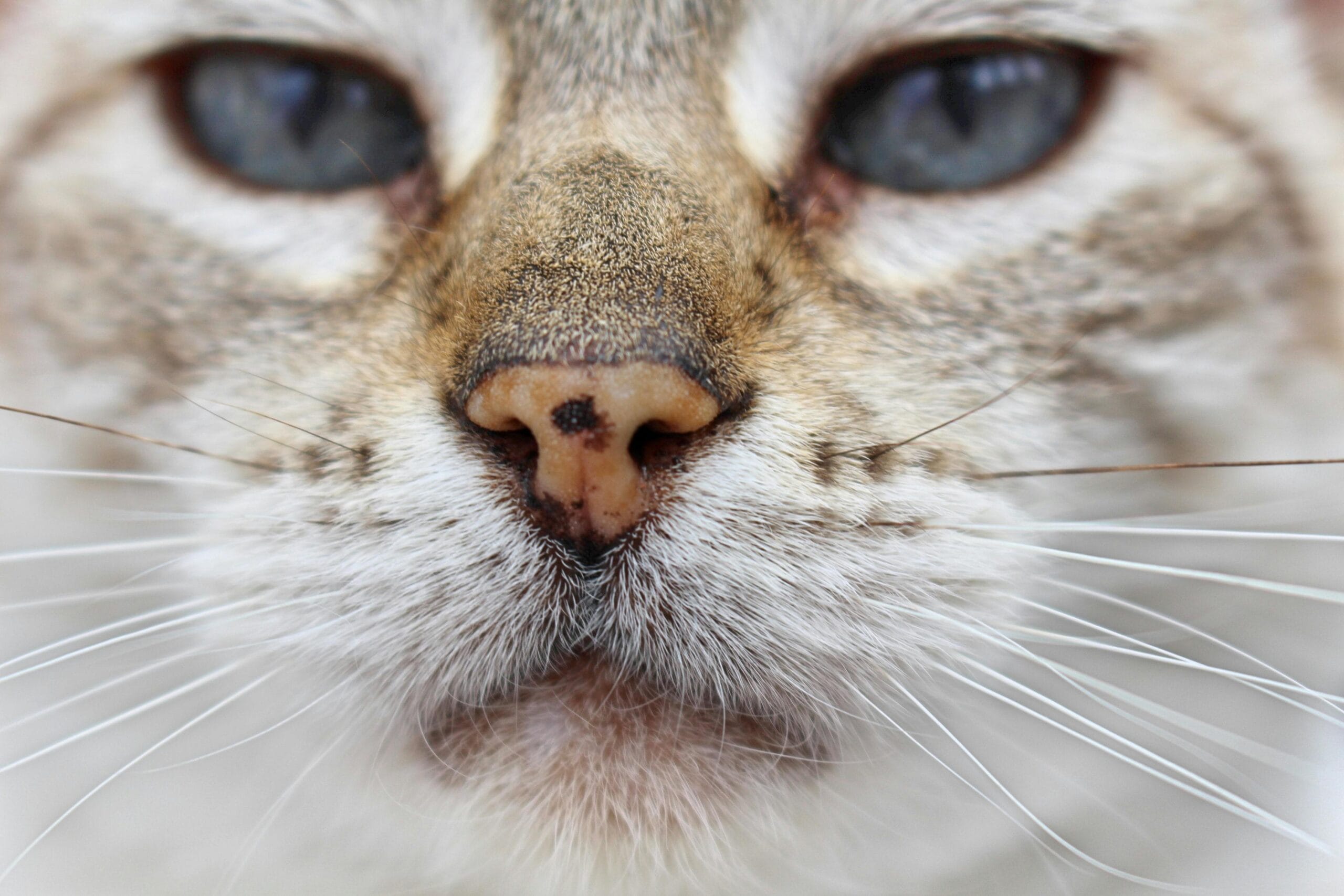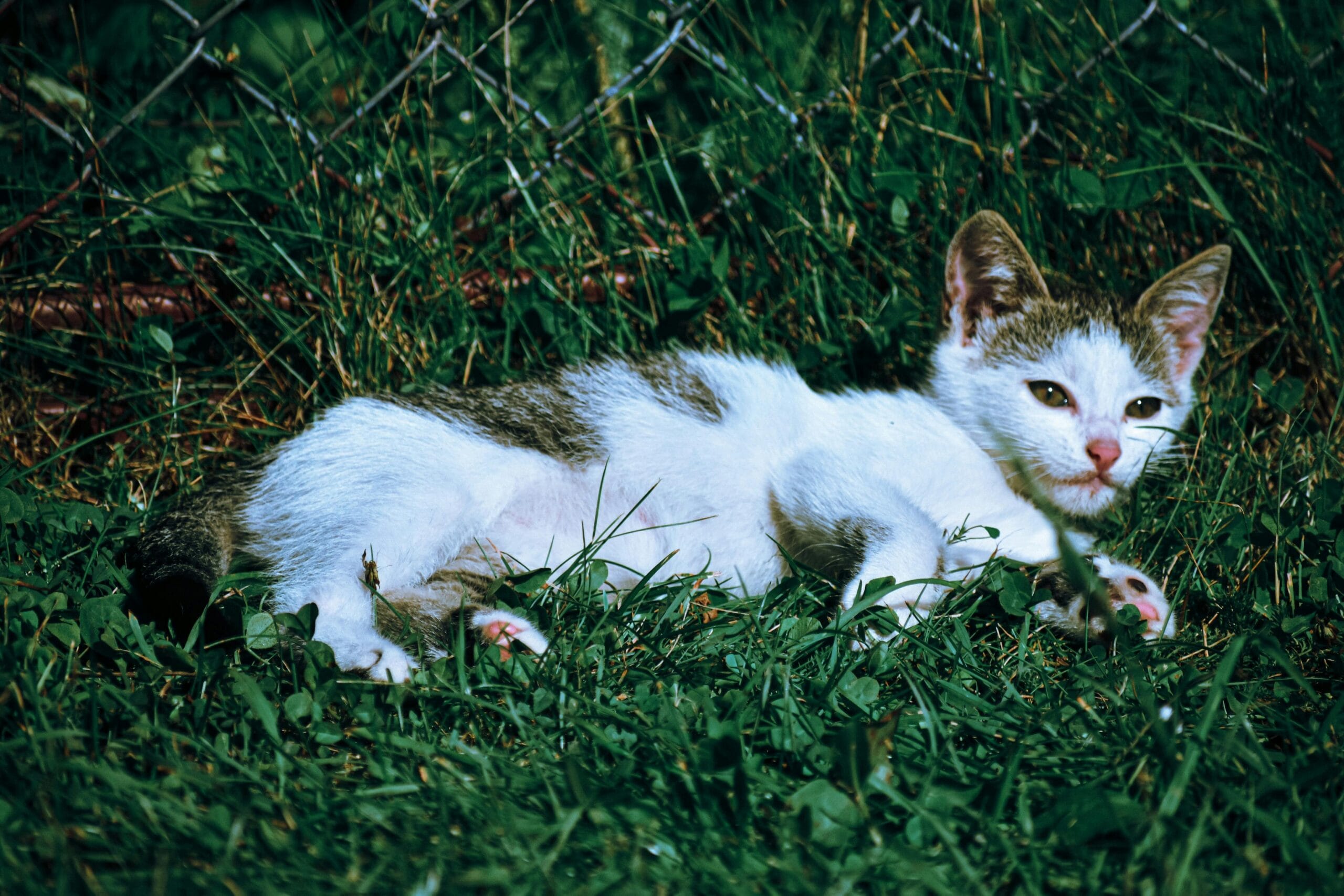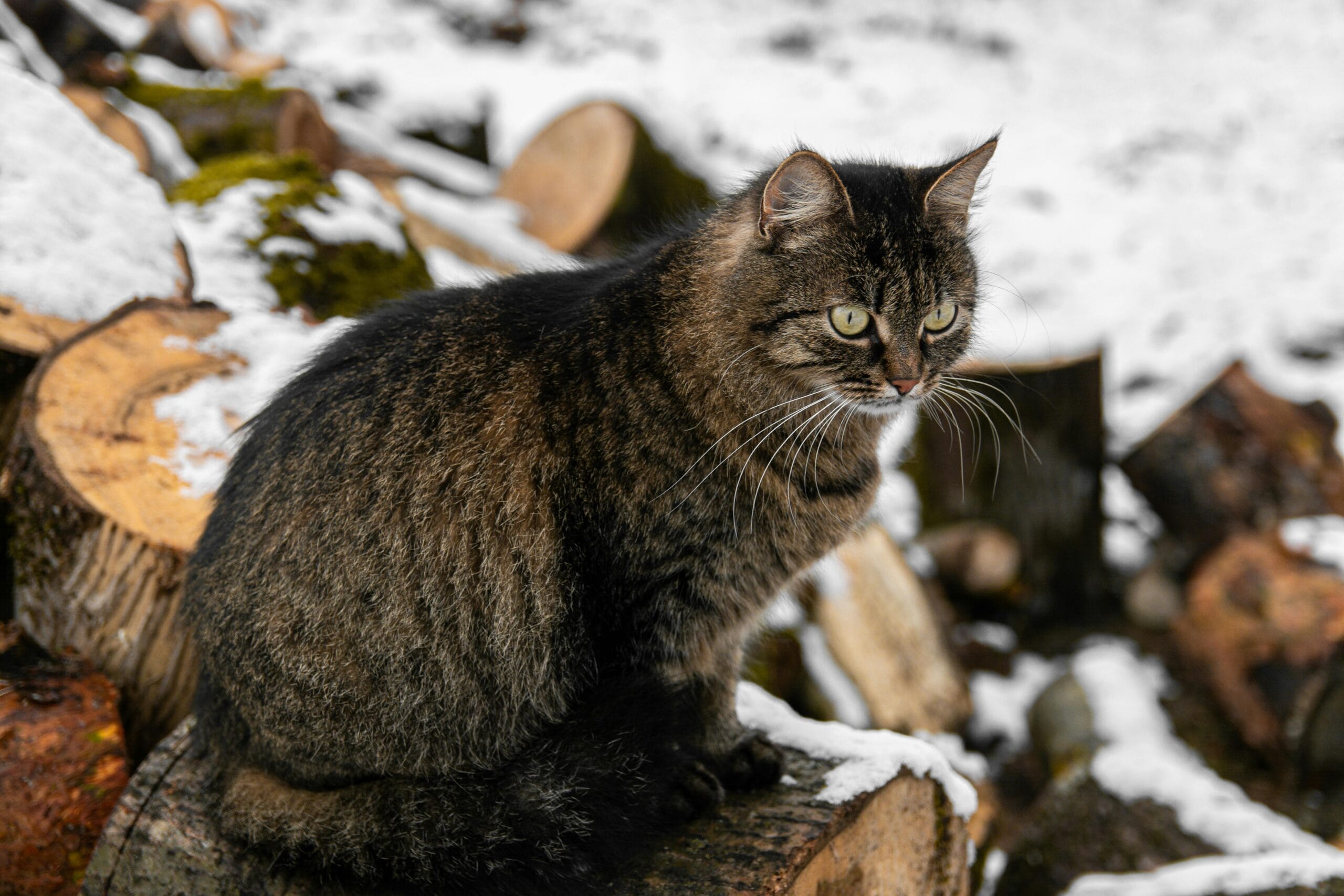What Happens If Cat Eats Thc Edible ?

What Happens If Cat Eats Thc Edible? Learn about cat THC edible symptoms & what to do if your cat eats weed edibles. Urgent advice & pet emergency info inside!
What Happens If My Cat Eats a THC Edible? A Comprehensive Guide
Discovering your cat has ingested a THC edible is a terrifying experience. This comprehensive guide aims to address your immediate concerns and provide you with crucial information regarding the potential consequences of your cat eating weed edibles, outlining cat thc edible symptoms and the best course of action. Understanding what happens if cat eats THC edible is paramount to ensuring your feline friend’s safety and well-being.
Understanding the Dangers: Why THC is Toxic to Cats
Unlike humans, cats lack the necessary metabolic enzymes to efficiently process THC (tetrahydrocannabinol), the primary psychoactive component of cannabis. This means that even small amounts of THC edibles, designed for human consumption, can have significant and potentially dangerous effects on a cat. While humans might experience mild euphoria or relaxation, cats may suffer from severe adverse reactions. The dosage in edibles, even a small piece, can be many times higher than what would be safe for a cat, relative to their body weight.
Recognizing the Signs: Common Cat THC Edible Symptoms
Knowing the cat thc edible symptoms is crucial for prompt intervention. The effects can vary depending on the amount ingested, the cat’s size, and its overall health, but common signs include:
- Lethargy and weakness
- Loss of coordination (ataxia)
- Dilated pupils (mydriasis)
- Vomiting and diarrhea
- Increased heart rate (tachycardia)
- Excessive drooling (hypersalivation)
- Tremors and muscle weakness
- Disorientation and confusion
- Difficulty breathing
- Seizures (in severe cases)
- Low body temperature (hypothermia)
If you suspect your cat has ingested a THC edible and observe any of these symptoms, it’s crucial to act quickly. Don’t delay; immediate veterinary attention is necessary.
What to Do If Your Cat Eats Weed Edible
Time is of the essence when dealing with a potential THC overdose in your cat. Here’s a step-by-step guide on what to do:
- Stay Calm: Panic won’t help. Assess the situation and gather information. Try to determine how much of the edible your cat consumed. If possible, take a photo of the edible packaging to show the vet.
- Contact Your Veterinarian Immediately: Don’t wait for symptoms to worsen. Your vet will be able to provide guidance and determine the best course of action based on your cat’s size, the amount ingested, and the symptoms presented. They may advise inducing vomiting at home (only if instructed to do so by your veterinarian) or to bring your cat in immediately.
- Gather Information: If possible, take a photo of the edible’s packaging to provide details to your veterinarian. This will help them determine the concentration of THC your cat consumed.
- Follow Your Vet’s Instructions: Carefully follow any instructions given by your veterinarian, whether it’s inducing vomiting, administering activated charcoal, or bringing your cat to the emergency clinic. Do not attempt any home remedies without first consulting a vet.
- Monitor Your Cat Closely: Continue to monitor your cat for any changes in behavior or condition, even after initial treatment. Report any new symptoms to your veterinarian.
The Role of the Veterinarian in Treating Cat THC Poisoning
Your veterinarian will play a critical role in managing the situation. They may use various methods to treat your cat, depending on the severity of the poisoning. This could include inducing vomiting (if appropriate), administering activated charcoal to absorb the THC, providing supportive care (fluids, oxygen), or managing any complications such as seizures or respiratory distress. The goal is to help your cat eliminate the toxins and manage the symptoms until the THC is metabolized from their system.
It’s important to remember that the treatment will depend on the severity of the situation. Early intervention is key to increasing the chances of a positive outcome. Remember, what happens if cat eats THC edible can be severe and require professional veterinary intervention.
Preventing Future Incidents: Keeping THC Edibles Away From Pets
Prevention is always the best approach. To avoid future incidents of cat eats weed edible scenarios, take these precautions:
- Store edibles securely and out of reach of pets. Keep them in locked cabinets or containers.
- Be mindful of where you consume edibles. Avoid eating them in areas accessible to your cat.
- Educate your household members about the dangers of THC to pets.
- Dispose of any used edibles appropriately, ensuring they are inaccessible to animals.
- Consider using child-proof containers that are specifically designed to be difficult for animals to open.
Remember, even small amounts of THC edibles can be dangerous for cats. A seemingly insignificant crumb can have significant consequences. Thoroughly clean up any spills or crumbs immediately.
Long-Term Effects of THC Exposure in Cats
While most cats recover fully from THC ingestion, there can be some long-term implications depending on the severity of the poisoning. Severe cases can lead to organ damage or other long-term health problems. Even if your cat seems to have fully recovered, it’s important to monitor them for any persistent symptoms. Regular veterinary check-ups are always advisable after a suspected THC ingestion.
Mythbusters: Common Misconceptions about Cats and THC
Several myths surround cat exposure to THC. Let’s debunk some of the most common ones:
- Myth: A little bit of THC won’t hurt my cat. Fact: Even small amounts can cause significant problems due to the differences in metabolism between cats and humans.
- Myth: My cat will sleep it off. Fact: While lethargy is a symptom, it doesn’t mean the cat is simply sleeping it off. Underlying health issues could be developing.
- Myth: Home remedies are sufficient. Fact: Always seek professional veterinary care. Home remedies could be ineffective or even harmful.
It’s crucial to rely on professional veterinary advice rather than home remedies or unreliable online information. For more information on pet toxicology, consider visiting the ASPCA Animal Poison Control Center website. They offer a wealth of information on poisonous substances and pet safety.
Understanding the Legal Ramifications
The legal implications surrounding accidental pet ingestion of THC edibles vary depending on location. However, it’s important to know that your vet is obligated to report animal abuse or neglect, and the ingestion of a controlled substance could trigger an investigation depending on the specifics of your situation. Be honest and transparent with your veterinarian about what happened to ensure appropriate care for your cat.
For more information regarding cannabis toxicity in animals, you can consult the Pet Poison Helpline. They offer 24/7 access to veterinary toxicologists and have valuable resources on pet safety.
Conclusion: Seeking Help is Crucial
Understanding what happens if cat eats THC edible is crucial for any cat owner. The symptoms of THC poisoning in cats can range from mild to severe, and prompt veterinary attention is essential to ensure the best possible outcome. Prevention is key, but being prepared and knowing what steps to take in an emergency can save your cat’s life. Remember, don’t hesitate to contact your veterinarian or an emergency animal hospital immediately if you suspect your cat has ingested a THC edible.
We hope this guide has provided you with valuable information. Share your experiences and ask any remaining questions in the comments below. Have you ever dealt with a similar situation? What were your experiences with cat thc edible symptoms and treatment? Let’s share our knowledge and help protect our feline companions!
National Library of Medicine provides a wealth of research articles on various health and toxicological issues; you can use this resource to further research the effects of THC on animals.

Frequently Asked Questions: Cat Eats THC Edible
1. What Happens If My Cat Eats a THC Edible?
If your cat eats a THC edible, the effects will depend on several factors, including the cat’s size, the potency of the edible, and the specific type of THC. Symptoms can range from mild lethargy and disorientation to severe tremors, vomiting, and difficulty breathing. Cat thc edible symptoms can be alarming, so immediate veterinary attention is crucial.
2. What are the Common Symptoms of a Cat Ingesting a THC Edible?
Common cat thc edible symptoms include dilated pupils, drooling, incoordination (ataxia), decreased appetite, vomiting, diarrhea, tremors, increased heart rate, and lethargy. In severe cases, seizures, respiratory depression, and even coma can occur. If you suspect your cat eats weed edible, contact your vet immediately.
3. How Quickly Do Symptoms Appear After a Cat Eats a THC Edible?
Symptoms typically appear within 30 minutes to 2 hours after ingestion, but the onset and severity vary depending on the factors mentioned above. The effects can last for several hours, or even longer in severe cases.
4. Is a Small Amount of THC Edible Harmful to My Cat?
Even a small amount of a THC edible can be harmful to a cat, as they are much more sensitive to THC than humans. What might be a mild experience for a person can be severely toxic for a cat. Don’t assume a small amount is harmless.
5. My Cat Just Ate a THC Edible, What Should I Do?
Immediately contact your veterinarian or an animal poison control center. While waiting for veterinary assistance, try to determine how much THC your cat ingested and keep your cat in a quiet, safe space to minimize stress. Do not induce vomiting unless instructed by a veterinarian.
6. What Kind of Treatment Will My Cat Receive at the Veterinary Clinic?
Treatment for THC ingestion in cats usually involves supportive care, such as intravenous fluids, medications to control symptoms like vomiting or tremors, and monitoring vital signs. The goal is to help the cat safely eliminate the THC from its system.
7. How Can I Prevent My Cat From Eating THC Edibles?
Store all edibles securely out of your cat’s reach, preferably in a locked cabinet or container. Be mindful of discarded packaging and remnants that your cat might find appealing.
8. What if My Cat Shows No Immediate Symptoms After Eating a THC Edible?
Even if your cat doesn’t show immediate cat thc edible symptoms, it doesn’t mean it’s safe. THC can still affect them, and delayed symptoms can occur. It’s essential to contact your veterinarian immediately if you suspect ingestion.
9. Are there specific THC edibles that are more dangerous for cats than others?
Highly concentrated edibles, those with added ingredients (like chocolate, which is toxic to cats), and those with other substances mixed in present a greater risk. All THC edibles pose a significant threat to cats.
10. Is it possible for a cat to die from eating a THC edible?
Yes, while rare, it is possible for a cat to die from ingesting a high dose of THC, particularly if other factors, such as pre-existing health conditions, are present. Immediate veterinary intervention is crucial to improve the chances of survival. If your cat eats weed edible, act fast.

What Happens If My Cat Eats a THC Edible?
If your cat ingests a THC edible, it’s crucial to act quickly. THC, the psychoactive component in marijuana, is toxic to cats and can cause serious health problems. Unlike humans, cats lack the necessary enzymes to effectively metabolize THC, leading to prolonged and potentially dangerous effects.
Immediate Actions:
1. Contact your veterinarian immediately: Don’t delay. This is the most important step. Your vet can provide guidance based on your cat’s size, the amount of THC ingested, and other relevant factors.
2. Try to determine how much THC your cat consumed: Knowing the dosage helps your vet assess the severity of the situation. Check the packaging of the edible for information on THC content.
3. Do NOT induce vomiting unless your vet instructs you to: Attempting to induce vomiting without professional guidance can be more harmful than helpful.
4. Gather information: Note the time of ingestion, the type of edible, and any observable symptoms your cat is experiencing. This information will be vital for your vet.
Symptoms of THC Toxicity in Cats:
Symptoms can vary depending on the amount of THC ingested and your cat’s individual sensitivity. However, common signs include:
- Lethargy and weakness
- Loss of coordination (ataxia)
- Dilated pupils
- Increased heart rate
- Vomiting
- Diarrhea
- Excessive drooling
- Tremors
- Seizures (in severe cases)
- Difficulty breathing (in severe cases)
Long-Term Health Considerations:
While most cats recover with veterinary intervention, severe THC poisoning can lead to long-term complications. Close monitoring and follow-up care are essential. Potential long-term effects could include liver or kidney damage in severe cases.
Prevention:
The best way to deal with this is prevention. Keep all THC edibles and marijuana products securely stored, out of reach of your curious feline companion. Consider using childproof containers and keeping them in a locked cabinet.
SEO Keywords:
cat eats thc edible, cat thc poisoning, cat marijuana toxicity, THC toxicity in cats, symptoms of THC poisoning in cats, cat emergency, veterinary emergency, cat health, pet safety